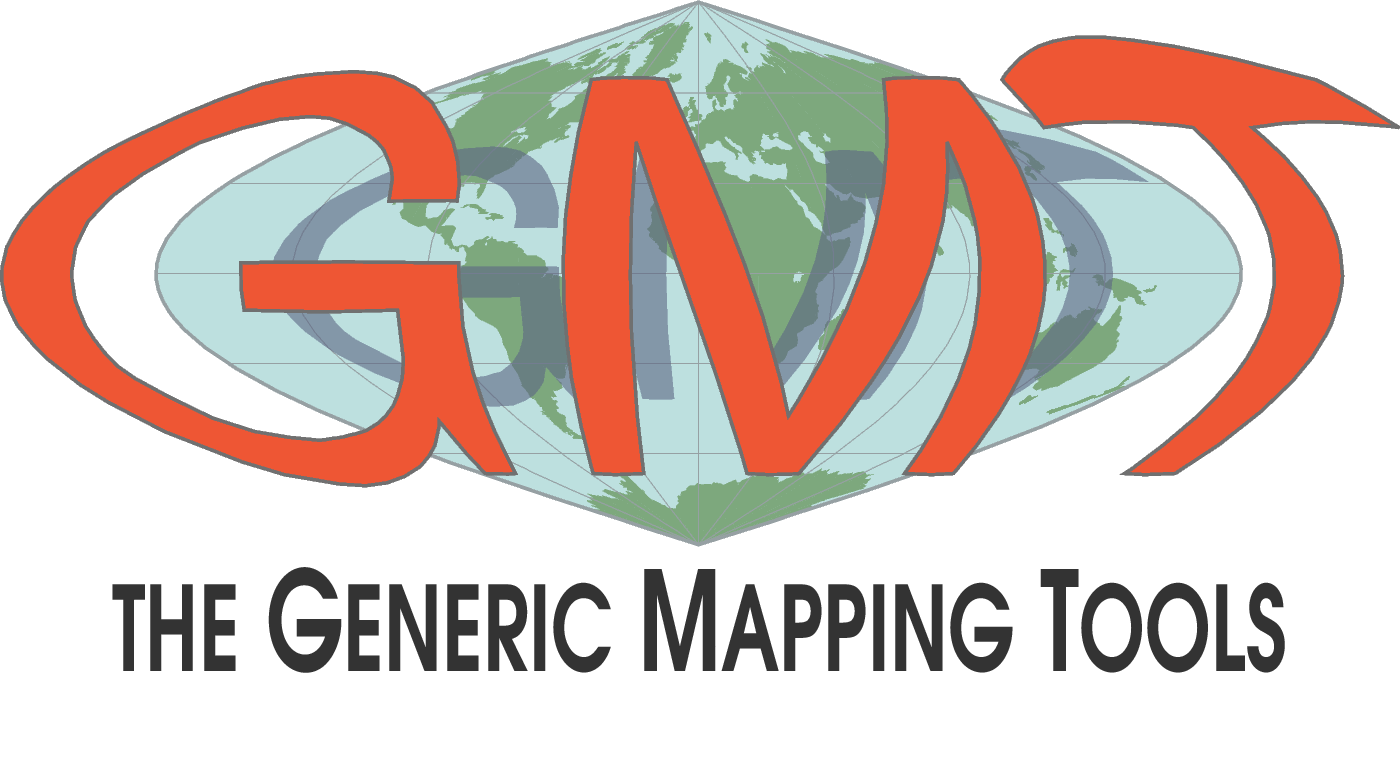Are you sure you want to delete this access key?




GMT is an open source collection of about 90 command-line tools for manipulating geographic and Cartesian data sets (including filtering, trend fitting, gridding, projecting, etc.) and producing high-quality illustrations ranging from simple x–y plots via contour maps to artificially illuminated surfaces and 3D perspective views. The GMT supplements add another 50 more specialized and discipline-specific tools. GMT supports over 30 map projections and transformations and requires support data such as GSHHG coastlines, rivers, and political boundaries and optionally DCW country polygons.
GMT is developed and maintained by the GMT Team, with help from a global set of contributors and support by the National Science Foundation.
Considering its flexibility at no charge, people worldwide are using GMT in their work and at home. Most users of GMT are Earth, ocean or planetary scientists, but there are apparently no limits to the kind of applications that may benefit from GMT. We know GMT is used in medical research, engineering, physics, mathematics, social and biological sciences, and by geographers, fisheries institutes, oil companies, a wide range of government agencies, and last but not least innumerable hobbyists.
GMT has been installed successfully under UNIX/Linux/macOS on workstations. It also installs under Windows and in UNIX emulators such as Cygwin or on virtual machines. We anticipate few problems if you are installing the package on other platforms.
Note there are three GMT tar archives available (#3 is optional):
For macOS and Windows users there are separate installers available. You can obtain GMT and support data from the GMT main site.
Refer to the install instructions to install GMT, and build instructions to build GMT from the sources.
If you think it is appropriate, you may consider paying us back by including our latest article in the reference list of your future publications that will benefit from the availability of GMT:
Wessel, P., Luis, J. F., Uieda, L., Scharroo, R., Wobbe, F., Smith, W. H. F., & Tian, D. (2019). The Generic Mapping Tools version 6. Geochemistry, Geophysics, Geosystems, 20, 5556–5564. https://doi.org/10.1029/2019GC008515
You haven't bought anything so you cannot expect full service. However, if you find a bug in any of the programs, please report it to us by opening an issue rather than trying to fix it yourself so that we, and through us, other users may benefit from your find. Make sure you provide us with enough information so that we can recreate the problem.
For general questions, please post on the GMT Community Forum.
Contributions are welcome and appreciated. Please refer to the contributing guidelines for more details.
Copyright (c) 1991-2020 by the GMT Team.
GMT is released under the GNU Lesser General Public License version 3 or any later version. See LICENSE.TXT for full details.
GMT relies on several other Open Source software libraries and programs for its operation. We gratefully acknowledge the importance to GMT of these products. GMT may be linked with these libraries (* means optional): Network Common Data Form (netCDF), Geospatial Data Abstraction Library (GDAL*), Perl Compatible Regular Expressions (PCRE*), Fastest Fourier Transform in the West (FFTW*), Linear Algebra Package (LAPACK*), Basic Linear Algebra Subprograms (BLAS*), and ZLIB*. GMT may call these executables: GDAL (ogr2ogr, gdal_translate), Ghostscript, FFmpeg, xdg-open, and GraphicsMagick.
Press p or to see the previous file or, n or to see the next file
Are you sure you want to delete this access key?
Are you sure you want to delete this access key?
Are you sure you want to delete this access key?
Are you sure you want to delete this access key?